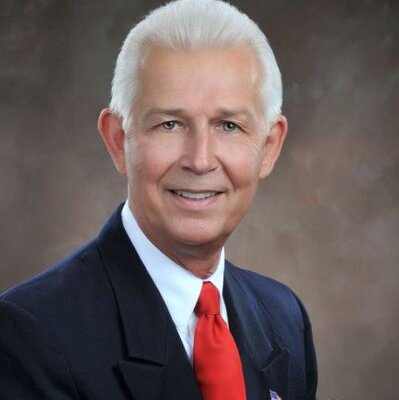As Doug Collins takes the helm of the Department of Veterans Affairs (VA) as part of the new Trump Administration, he faces a concerning challenge.
A persistent backlog of pending claims for VA disability compensation and benefits that was left unaddressed during the Biden administration is making it difficult for many of our nation’s heroes to gain access to the crucial support they’ve earned through their sacrifices for our nation.
Given the new president’s penchant for turning things around and for selecting skilled cabinet secretaries, many are hopeful that these two men will be able to successfully confront this concerning challenge. But with demand for VA disability benefits expected to grow in future years as claims associated with exposure to things such as toxic burn pits and the Navy’s “Blue Water” herbicide unfortunately begin to increase, incorporating more avenues of assistance into the VA disability benefits claims process would also be a welcome development.
While both Congress and state legislatures across the country have started working on their own solutions to this pressing concern, New England exemplifies both the challenges and opportunities in addressing this issue. Even though over 700,000 veterans call the region home, New Hampshire – and every other state in New England save one – have a veteran population that currently receives VA disability benefits below the national average. This underscores the need for action.
With competing proposals currently working their way throughout statehouses in the region, it has served as an important reminder that not all legislative fixes are created equal. In states like Connecticut and Rhode Island, where I previously served as a state representative, well-intentioned but misguided bills are currently under consideration that would risk limiting veterans’ options rather than expanding them. Specifically, legislative proposals to ban private consulting agents would eliminate a valuable resource that many veterans have relied upon to navigate the complex benefits process.
My personal experience with the VA benefits system provides insight into why multiple assistance pathways are crucial. While I was able to connect with a Veterans Service Organization (VSO) case worker who helped secure my benefits, many veterans aren’t as fortunate. The quality and availability of VSO support varies significantly by location, and VA-accredited attorneys typically only become involved after an initial claim denial. That’s why private consulting agents have emerged to fill this critical gap in service.
By harnessing the power and incentives of the free market, these professionals provide comprehensive assistance throughout the claims process, regardless of a veteran’s location. Many of these businesses are veteran-owned and have developed efficient systems to guide service members through the complex application process. Meanwhile, their contingency-based payment model aligns their interests with veterans’ success, as they only receive compensation if and when a veterans’ benefit payment increases.
Unfortunately, because current rules do not allow these consultants to gain official recognition from the VA, some state legislatures have sought to criminalize them. Congress will hopefully fix this oversight in the coming years, but in the interim, state legislatures should look toward finding a better way to protect veterans from potential unethical actors than by instituting an outright ban on private consulting agents.
New Hampshire offers a more constructive approach through the Safeguarding American Veteran Empowerment (SAVE) Act. The legislation establishes necessary oversight while preserving veterans’ access to private consulting services by implementing qualification requirements, ethical standards, disclosure mandates, and fee caps. This creates a framework that provides veterans with the peace of mind of knowing that they are working with reputable agents who have their best interests at heart, while maintaining their freedom of choice.
The path forward requires balancing veteran protection with empowerment. Safeguarding veterans from predatory practices is essential, but we must avoid overreach that eliminates legitimate assistance options. Elected officials in New Hampshire should be commended for how they have shown leadership on this issue by introducing the SAVE Act and states across New England should follow suit.
Since retiring from the military and entering public service, I have been a tireless advocate for veterans causes, witnessing firsthand the importance of expanding rather than restricting their support systems. Our veterans defended our freedoms abroad and now we must protect their freedom to choose how they access their earned benefits at home. Through careful oversight and expanded options, we can honor their service by ensuring they receive the support they deserve in civilian life.





